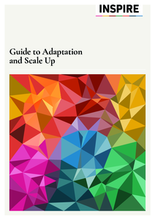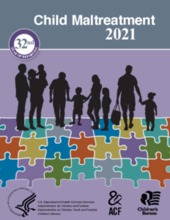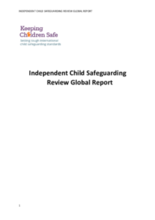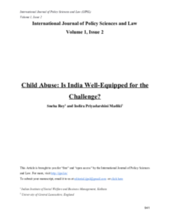Displaying 101 - 110 of 1089
This Guide was created as a resource for the adaptation and scale up of a country's unique action plan to address violence against children.
INSPIRING Ways to End Violence Against Children's new series of podcast episodes explore organisations’ efforts to protect children – and adapt to challenges – during COVID-19.
Child Maltreatment 2021 is the latest edition of the annual Child Maltreatment report series. States provide the data for this report via the National Child Abuse and Neglect Data System (NCANDS). NCANDS was established as a voluntary, national data collection and analysis program to make available state child abuse and neglect information.
The Independent Child Safeguarding Review (ICSR) was commissioned by the International Senate of SOS Children’s Villages to find ways to address the complex topic of child safeguarding failures. The report sets out consolidated findings and recommendations from four country reviews with the aim of contributing to improvements in safeguarding practice.
The scope of this study is not just to understand why abuse happens, and the changes that take place subsequently, but also to explore ways of preventing it from happening in the future.
This study analyzed three open-ended responses from a national online survey examining compassion fatigue in Children’s Advocacy Centers (CACs) to understand the impact of work-related stress on child welfare workers (CWWs).
The authors of this study examined attitudes about child maltreatment in China and the Netherlands.
In the present report, submitted pursuant to General Assembly resolution 74/133, the Special Representative of the Secretary-General on Violence against Children, Najat Maalla M’jid, provides an overview of major initiatives and developments that sustain and scale up efforts to safeguard children’s freedom from violence and advance implementation of the 2030 Agenda for Sustainable Development.
This study investigates the extent and causes of child abandonment and various practices and services in relation to prevention of child abandonment in Denmark and other high-income countries.
This high-level event launched 'Together to #ENDviolence' – a global campaign and Solutions Summit Series to inspire the end violence community and catalyse the political and financial commitments needed to end violence against children at home, at school, online and within communities.






